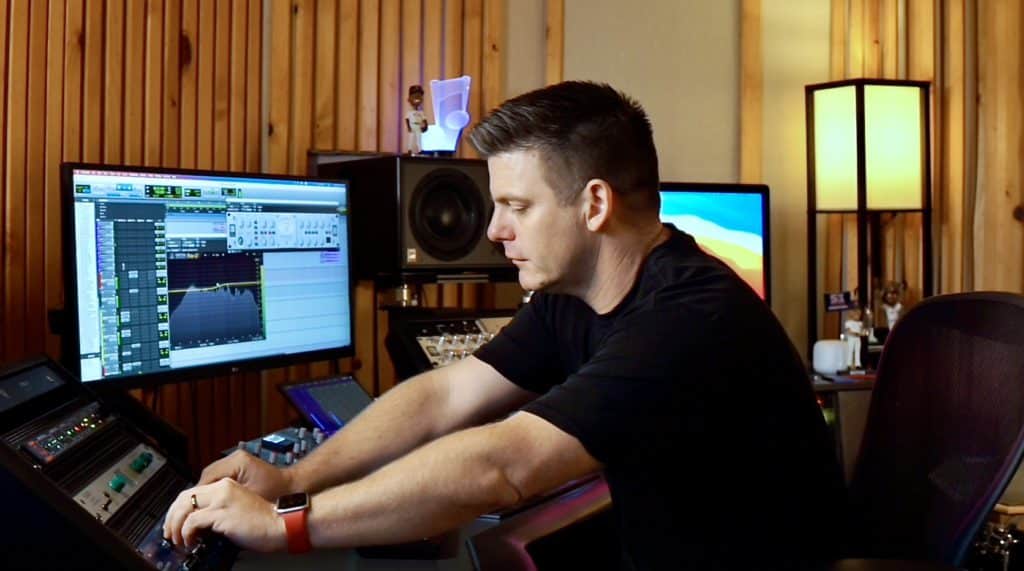Introduction
In the evolving landscape of music production, the roles of mixing and mastering are more crucial than ever. Professional mixing and mastering services provide artists with the expertise and technical finesse necessary to create polished, radio-ready tracks. This article explores the significance, processes, and benefits of these services, guiding musicians through the journey of enhancing their sound quality.
What is Mixing and Mastering?
Mixing and mastering are distinct but complementary processes in music production. Mixing involves combining individual tracks (vocals, instruments, etc.) to create a cohesive piece. This step includes adjusting levels, panning sounds, applying effects, and ensuring clarity and balance. Mastering, on the other hand, is the final polish. It enhances the overall sound, ensures consistency across all tracks, and prepares the final mix for distribution.
The Importance of Professional Mixing and Mastering Services
The primary goal of professional mixing and mastering services is to enhance the sound quality of your music. A professional mix ensures that each element of your track can be heard clearly and sits well within the overall mix. Mastering brings out the best in your mix, ensuring it sounds great on all playback systems, from high-end speakers to earbuds.

Matty Harris Mixing & Mastering Engineer
Differences Between Mixing and Mastering
The Role of a Mixing Engineer
A mixing engineer is responsible for combining multiple audio tracks into a final stereo or multi-channel format. This involves balancing levels, equalizing tracks, adding effects like reverb or delay, and ensuring that each element occupies its own space within the mix.
Benefits of Professional Mixing Services
Achieving Balance and Clarity
Professional mixing services provide the expertise to achieve balance and clarity in a track. This involves ensuring that the vocals are prominent, the bass is solid, and the highs are crisp, creating an engaging and well-balanced mix.
Ensuring Consistency Across Tracks
Mastering services ensure that all tracks on an album have a consistent sound. This involves matching levels, equalizing frequencies, and applying compression to ensure a cohesive listening experience from start to finish.
How to Choose the Right Mixing and Mastering Services
Choosing the right mixing and mastering services requires careful consideration of several factors. Look for engineers with a proven track record, positive reviews, and samples of their previous work. Consider their experience with your genre and their ability to communicate effectively.
Experience and Skill
A professional mixing engineer should have a wealth of experience and technical skill. They should be well-versed in various mixing techniques and have a deep understanding of how to bring out the best in each track.
Attention to Detail
Mastering engineers must possess an acute attention to detail. They should be able to identify and correct even the smallest imperfections in a mix, ensuring that the final product is flawless and ready for distribution.
Tools and Technology Used in Mixing
Digital Audio Workstations (DAWs)
Modern mixing relies heavily on Digital Audio Workstations (DAWs). These powerful software tools allow engineers to manipulate audio with precision, using a variety of plugins and effects to achieve the desired sound.
Equalization and Compression
Equalization (EQ) and compression are fundamental techniques in mixing. EQ involves adjusting the balance of frequencies within a track, while compression controls the dynamic range, ensuring that no part of the mix is too loud or too soft.
Analog vs. Digital Equipment
Mastering can be performed using both analog and digital equipment. Analog gear is prized for its warmth and character, while digital tools offer precision and versatility. Many mastering engineers use a hybrid approach to combine the best of both worlds.
Loudness Maximization
Loudness maximization is a key aspect of mastering. This process ensures that the final track is as loud as possible without introducing distortion, making it competitive with commercially released music.
The Process of Professional Mixing & Mastering
The mixing process typically begins with an initial balance, where levels are adjusted to create a rough mix. This is followed by detailed EQ and compression, panning, and the addition of effects. The final step involves automation, where changes in levels and effects are programmed to occur dynamically throughout the track.
Finalizing the Track
Mastering involves several steps, starting with critical listening to identify any issues in the mix. This is followed by EQ adjustments, compression, stereo enhancement, and limiting. The final stage involves creating the master files for distribution, ensuring they meet industry standards.
Common Mistakes in DIY Mixing and Mastering
One of the most common mistakes in DIY mixing and mastering is overcompression, which can lead to a lifeless, flat sound. Another issue is imbalance, where certain elements dominate the mix while others are buried, resulting in a lack of clarity and cohesion.
Cost of Professional Mixing and Mastering Services
The cost of professional mixing and mastering services can vary widely. Factors influencing price include the engineer’s experience, the complexity of the project, and the number of revisions required. It’s important to balance cost with quality to ensure the best results.
Balancing Cost and Quality
Finding affordable professional services involves researching and comparing different providers. Look for engineers who offer competitive rates and listen to samples of their work to ensure they meet your standards. Sometimes, less experienced engineers offer quality services at lower prices as they build their portfolio.
Tips for Preparing Your Tracks for Mixing and Mastering
Properly preparing your tracks for mixing and mastering is crucial. Ensure that all files are well-organized and clearly labeled. Provide a rough mix as a reference, and include any notes about your vision for the final product.
Providing Clear Feedback
Effective communication with your engineer is essential for achieving the desired results. Provide clear, concise feedback and be open to their suggestions. Discuss your goals for the project and any specific requirements you have.
Online Mixing and Mastering Services
Online mixing and mastering services offer convenience and access to a broader range of engineers. However, it’s important to thoroughly vet these services to ensure they meet your quality standards. Look for reviews, listen to samples, and communicate clearly with the engineer. Websites like SoundBetter can be a great starting point.
Local vs. Remote Mixing and Mastering Services
Both local and remote mixing and mastering services have their advantages and disadvantages. Local services allow for in-person collaboration and easier communication, while remote services offer access to a wider pool of talent and potentially lower costs.
FAQs about Professional Mixing and Mastering Services
What are the main differences between mixing and mastering?
Mixing involves blending individual tracks to create a cohesive song, adjusting levels, panning, and applying effects. Mastering is the final step, enhancing the overall sound and ensuring consistency across all tracks.
Why should I invest in professional mixing and mastering services?
Professional services ensure that your music sounds polished, balanced, and ready for distribution. They bring technical expertise and high-quality equipment that are often beyond the reach of DIY efforts.
How much do professional mixing and mastering services typically cost?
Prices vary widely depending on the engineer’s experience, project complexity, and service quality. It’s important to balance cost with the quality of the final product.
Can online mixing and mastering services deliver the same quality as local services?
Yes, many online services offer high-quality results. The key is to research thoroughly, review their portfolio, and communicate your needs clearly.
How do I prepare my tracks for mixing and mastering?
Organize and label all files clearly, provide a rough mix as a reference, and include any specific notes or instructions for the engineer.
What should I look for when choosing a mixing and mastering engineer?
Look for experience, positive reviews, samples of their work, and their ability to communicate effectively. Ensure they have experience in your genre and can deliver the sound you’re aiming for.
Conclusion
Professional mixing and mastering services are essential for musicians aiming to produce high-quality, polished tracks. By leveraging the expertise of skilled engineers, artists can ensure their music stands out in a competitive industry. Whether opting for local or online services, thorough research and clear communication are key to achieving the best results. Investing in these services not only enhances sound quality but also elevates the overall production value, making your music more appealing to listeners and industry professionals alike.






